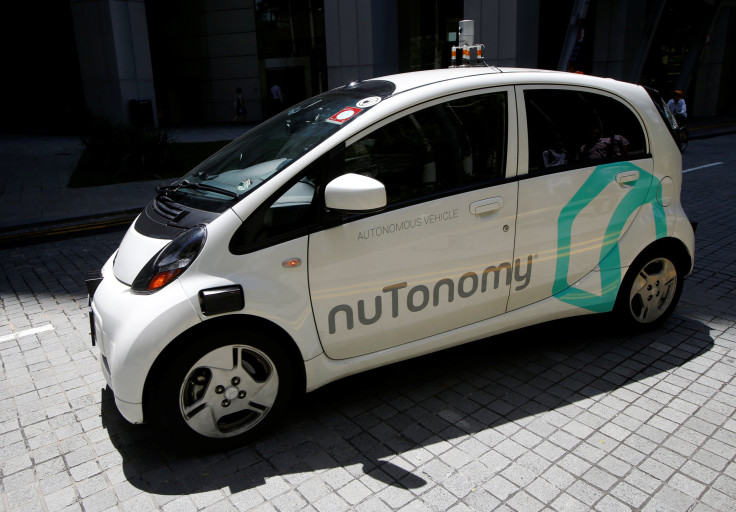World’s First Self-Driving Taxis Hit Singapore Streets In Limited Trials

The world’s first-ever self-driving taxis hit the roads in Singapore on Thursday in a limited public trial. The “robo-taxi” service is taking place in a hi-tech business district in the western part of the country, where developer nuTonomy has been conducting daily autonomous vehicle testing since April.
The company said that it had invited select Singapore residents to use its ride-hailing smartphone app to book a free ride in a nuTonomy self-driving car that employs the company’s sophisticated software. The company’s plan is to get feedback ahead of a planned launch of the service in Singapore in 2018.
“Throughout the trial, nuTonomy will collect and evaluate valuable data related to software system performance, vehicle routing efficiency, the vehicle booking process, and the overall passenger experience,” the company said in a statement.
The rides will be provided in a Renault Zoe or Mitsubishi i-MiEV electric vehicle, specially configured by nuTonomy for autonomous driving. The pilot scheme will also have a nuTonomy engineer riding in the vehicle to observe system performance and assume control if needed, the company said.
According to Doug Parker, nuTonomy's chief operating officer, self-driving taxis could ultimately reduce the number of cars running on Singapore’s streets from 900,000 to 300,000, the Associated Press (AP) reported.
“When you are able to take that many cars off the road, it creates a lot of possibilities. You can create smaller roads, you can create much smaller car parks,” AP quoted Parker as saying. “I think it will change how people interact with the city going forward.”
Earlier this month, the Singapore Land Transport Authority (LTA) selected nuTonomy as an R&D partner to support the development of a commercial autonomous vehicle service in the country.
“The trial represents an extraordinary opportunity to collect feedback from riders in a real-world setting, and this feedback will give nuTonomy a unique advantage as we work toward deployment of a self-driving vehicle fleet in 2018,” said Karl Iagnemma, CEO and co-founder of nuTonomy.
In addition to Singapore, nuTonomy is also operating self-driving cars in Michigan and the United Kingdom, where it has tested software in partnership with major automotive manufacturers such as Jaguar Land Rover.
Several automakers and technology firms have been striking new alliances of late to launch self-driving vehicles. Swedish automaker Volvo announced last week that it had agreed to a $300 million deal with ride-hailing service Uber to develop a driverless vehicle. Ford also announced last week that it plans to build fully automated, driverless cars for commercial ride-sharing by 2021. Earlier this month, automotive parts manufacturing company Delphi also announced a partnership with the Singapore government to test its driverless car service in the country.
© Copyright IBTimes 2024. All rights reserved.



















